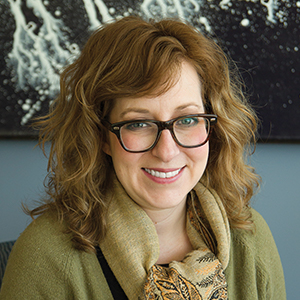10 young scientists win PROLAB awards
Ten early-career researchers have won travel grants from the Promoting Research Opportunities for Latin American Biochemists program. They will use the awards to conduct research in academic laboratories in the United States and Canada.
Since 2012, the American Society for Biochemistry and Molecular Biology, the Pan-American Society for Biochemistry and Molecular Biology, and the International Union for Biochemistry and Molecular Biology have issued about 100 travel awards to young biochemists.
This year’s PROLAB travel grants are going to Ph.D. students and postdoctoral fellows from Argentina, Brazil, Chile and Uruguay. All but one will work in the United States.
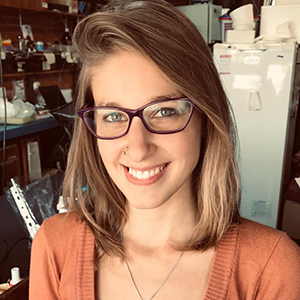
Carolina Alberca
Carolina Alberca is a Ph.D. student at the Universidad de Buenos Aires in Argentina. She is a member of the neuroepigenetics lab in the department of biological chemistry. “The main objective of my Ph.D. thesis is to identify the cellular and molecular mechanisms underlying the cognitive deficits derived from perinatal protein malnutrition in mice and the effects of reversion due to a stimulating growth environment, with special emphasis on the epigenetic mechanisms,” she said. She will spend time in the lab of Reid S. Alisch at the University of Wisconsin School of Medicine and Public Health. The grant, she said, “will allow me to learn about novel techniques and will provide me tools to broaden and enhance my specialization in the neurobiology field.”
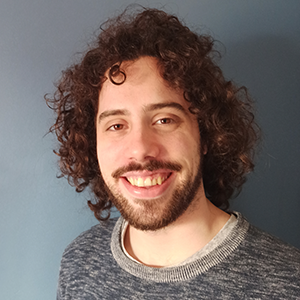
Giuliano Tomás Antelo
Giuliano Tomás Antelo is a Ph.D. student at the Fundación Instituto Leloir in the Ciudad Autónoma de Buenos Aires, Argentina. He studies “how the molecular evolution of transcriptional regulators in pathogenic bacteria gave rise to new resistance mechanisms against antibiotics and the immune system.” He will spend time in the lab of David P. Giedroc at Indiana University’s chemistry department. “I'm grateful for this opportunity that will allow me to learn cutting-edge nuclear magnetic resonance spectroscopic techniques and grant me access to equipment not yet available in my country,” Antelo said. “I believe this will be an extraordinary experience to expand our knowledge on the role of internal protein dynamics in bacterial resistance and to strengthen the international collaboration between our labs.”
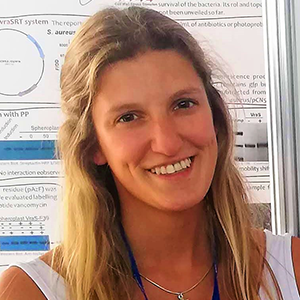
Melisa Antinori
Melisa Antinori, a Ph.D. student at the Universidad Nacional de Rosario in Argentina, is working on a thesis project focused on the mechanism of activation of the vraSRT system of Staphylococcus aureus, which results in resistance to β-lactam and glycopeptide antibiotics. She will be joining the lab of Gerry Wright at McMaster University in Canada. At McMaster’s Michael G. DeGroote Institute for Infectious Disease Research, she plans to continue studies of bacterial resistance to antibiotics. “This research stay will allow me to use unique compounds to evaluate whether there is direct interaction of vancomycin or of cell-wall–derived fragments with the proteins of the vraSRT system,” she said. “I will be working in one of the most renowned laboratories in my area of research, in contact with experts in the subject, which will greatly contribute to my formation as a scientist.”
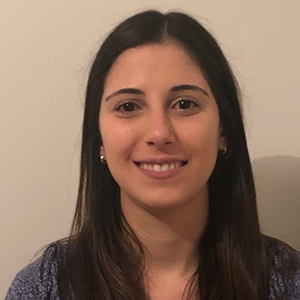
Dayana Benchoam
Dayana Benchoam is a Ph.D. student at the Universidad de la República in Uruguay who studies the reactivity of biological persulfides. She will spend time in the lab of Ruma Banerjee at the University of Michigan. “This visit is a valuable opportunity to transition from my studies on low–molecular-weight persulfides to proteins with an expert in the field,” Benchoam said. “It will nurture my doctoral training and broaden my knowledge, allowing me to bring back expertise that would be useful in the research setting in my own country.”
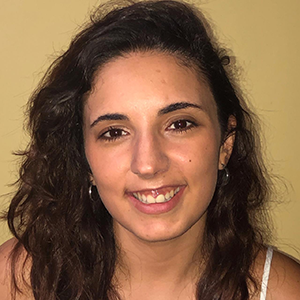
Priscila Chiavellini
Priscila Chiavellini is a Ph.D. student studying aging at the Universidad Nacional de La Plata in Argentina. She’ll be joining the lab of Vittorio Sebastiano at Stanford University. At the Institute for Stem Cell Biology and Regenerative Medicine, she looks forward to getting “experience in state-of-the-art techniques and a deeper understanding of the biological processes underlying the reversion of aging.”
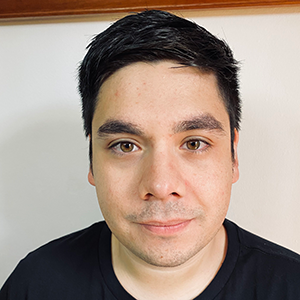
Pablo Cruz Núñez
Pablo Cruz Núñez is a Ph.D. student at the Faculty of Medicine of the Universidad de Chile. He studies ion channels and is particularly interested in how post-translational modifications regulate store-operated Ca2+ entry components. He will be visiting the lab of James S. Trimmer at the University of California, Davis. “This award means to me a great challenge and opportunity to expand my knowledge in molecular and cell biology of ion channels. I expect to learn a lot from great researchers in a collaborative environment, which could mean, in the future, an opportunity for the development of high-impact studies,” Cruz said.
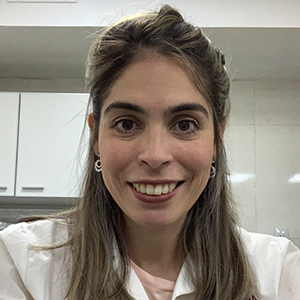
Maria Florencia González Lizárraga
Maria Florencia González Lizárraga is a postdoctoral researcher at the Instituto de Investigación en Medicina Molecular y Celular Aplicada in Argentina. She is studying the proteins involved in neurodegenerative diseases and will be working in the lab of Rodrigo Maillard at Georgetown University “on the characterization of the interaction between α-synuclein and tau proteins using optical tweezers.” She added: “This approach will allow us (to better understand) the cross-talk between these proteins at the level of single molecules. This will also help to identify novel targets for designing therapeutic interventions in a variety of neurodegenerative diseases.”
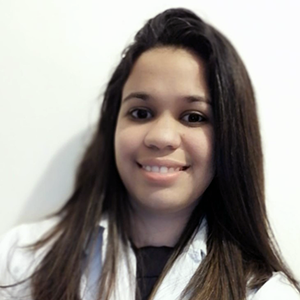
Marisol León Cabrera
Marisol León Cabrera is a Ph.D. candidate at the Universidade def São Paulo in Brazil, where she’s working to understand the metabolic impacts of maternal obesity on prenatal development in a mouse model using multimodal imaging. She will be visiting the lab of Kimberly K. Buhman at Purdue University. “The PROLAB scholarship (will make) my dream to (go) to Purdue University to perform chemical imaging experiments come true,” León said. “My research quality and impact will greatly improve. Also, the mentorship I will receive in this international experience will certainly play a major role in my future academic career.”
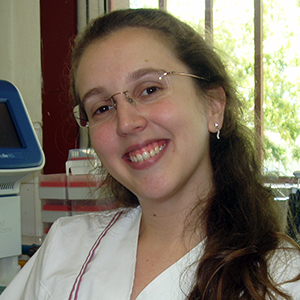
Maria Florencia Rossetti
Maria Florencia Rossetti is a postdoctoral researcher at the Universidad Nacional del Litoral in Santa Fe, Argentina. “The general objective of my research project is to explore the importance of maternal nutritional environment during prenatal and early postnatal life on brain functions and to provide novel mechanisms through which such early experiences may lead to the onset of metabolic syndromes, neurodevelopmental disorders and other brain disorders later in life,” she said. She will be joining the lab of Nancy G. Forger at Georgia State University. “My project in the Forger lab will address how information about the maternal microbiota is conveyed to the offspring brain. This training will give me new tools for gut microbiota and microglial practices and the possibility to interact with foreign students and scientists resulting in a professional and cultural enriched experience.”
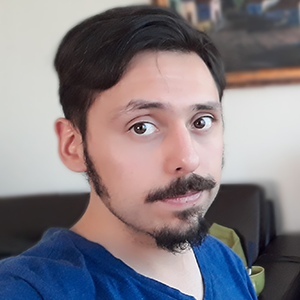
Ian Silva
Ian Silva is a Ph.D. student at the Facultad de Medicina of the Universidad de Chile, where he studies the role of TRP channels on Ca2+ signaling and cellular migration. He will be visiting the lab of Madesh Muniswamy at the University of Texas Health Science Center at San Antonio. “During this rotation, using a model of colon cancer cells, I will evaluate whether two TRP channels are involved in the regulation of mitochondrial function,” Silva said. “Thus, this rotation will give me the opportunity not only to learn new methodologies to address mitochondrial functions, but will lay the foundations for future collaborations.”
Enjoy reading ASBMB Today?
Become a member to receive the print edition four times a year and the digital edition monthly.
Learn moreFeatured jobs
from the ASBMB career center
Get the latest from ASBMB Today
Enter your email address, and we’ll send you a weekly email with recent articles, interviews and more.
Latest in Careers
Careers highlights or most popular articles

From humble beginnings to unlocking lysosomal secrets
Monther Abu–Remaileh will receive the ASBMB’s 2026 Walter A. Shaw Young Investigator Award in Lipid Research at the ASBMB Annual Meeting, March 7-10 in Washington, D.C.

Chemistry meets biology to thwart parasites
Margaret Phillips will receive the Alice and C. C. Wang Award in Molecular Parasitology at the ASBMB Annual Meeting, March 7-10 in Washington, D.C.

Decoding how bacteria flip host’s molecular switches
Kim Orth will receive the Earl and Thressa Stadtman Distinguished Scientists Award at the ASBMB Annual Meeting, March 7–10, just outside of Washington, D.C.

Defining JNKs: Targets for drug discovery
Roger Davis will receive the Bert and Natalie Vallee Award in Biomedical Science at the ASBMB Annual Meeting, March 7–10, just outside of Washington, D.C.

Upcoming opportunities
No matter where you are in your career and what future path you aspire to, everyone needs leadership skills. Join ASBMB for practical strategies for building and practicing leadership skills.

Close out ASBMB 2026 with a bang
The closing reception of the 2026 ASBMB Annual Meeting will be held at the Torpedo Factory Art Center in Alexandra, Virginia.

